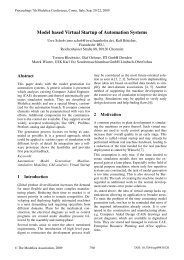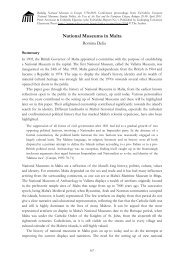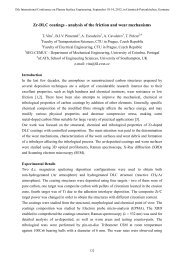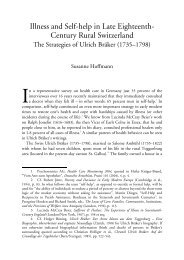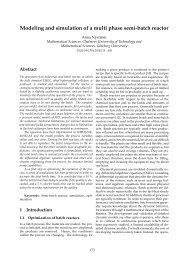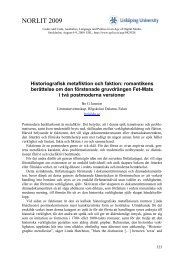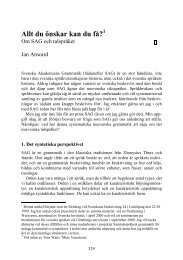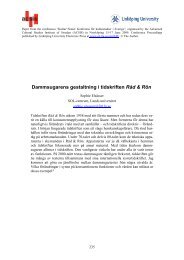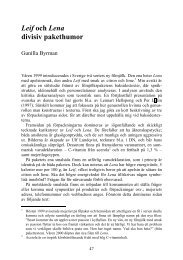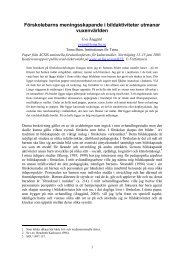Full article (pdf)
Full article (pdf)
Full article (pdf)
Create successful ePaper yourself
Turn your PDF publications into a flip-book with our unique Google optimized e-Paper software.
A healthy body in old age<br />
enters the negotiation but perceives the situation as choices of already<br />
fixed solutions, maybe because they are presented as such. Consequently,<br />
a logic of choice characterises the home visit; the choices available and their<br />
potential drawbacks are not meaningful to the Havemanns so they end up<br />
choosing the well-known daily life in the flat where the advise of health<br />
campaigns, doctors and advisors have no power.<br />
Both Mr Holten and Mr Havemann probably knew that the advice they<br />
got would do them good, at least in a strict medical way, so why did they<br />
reject it so clearly? They both accepted the health-promoting visit, which<br />
seems to indicate a certain interest in a care of the self and still they were<br />
upset by the health-promoting suggestions they got. In the cases where<br />
the citizens refused to partake in a health negotiation with the health<br />
advisor, or even to receive a home visit at all, something else other than<br />
unwillingness to stay or become healthy was probably at stake. I will<br />
argue that they had the same wish for health as the other citizens but<br />
another perception of the home visits: These citizens might anticipate<br />
or experience the home visits in the sense of an asymmetrical care<br />
rationale, where they are met by health choices of fixed, already negotiated<br />
solutions, but there is also something else at stake, different perceptions<br />
of autonomy; statements by three of the seven individually recruited<br />
informants whom we interviewed support this view. These citizens had<br />
rejected the home visits and claimed a health advisor’s visit to be<br />
potentially dangerous in terms of losing one’s autonomy through being<br />
told to eat or act differently and through being unwillingly moved to a<br />
nursing home. In the 13 participant observation cases, we did not meet any<br />
citizens who spoke of the visits as representing a risk though this could<br />
be due to a bias caused by feeling grateful that somebody cares for<br />
your health, even though the care in this case is formalised, public and<br />
paid for (Lewinter 2008). The independently recruited citizens were all<br />
healthy in a medical sense and had no or little contact with their GP’s<br />
but the mere fact or thought of the welfare state being in one’s home<br />
through the health advisor’s visit might contribute to a negative sense of<br />
being urged to live differently even though you are a mature adult with<br />
own, well established practices.<br />
In the municipality in our study, some 60% of aged citizens reject the<br />
home visits and in the study itself, half of the independently recruited<br />
19



